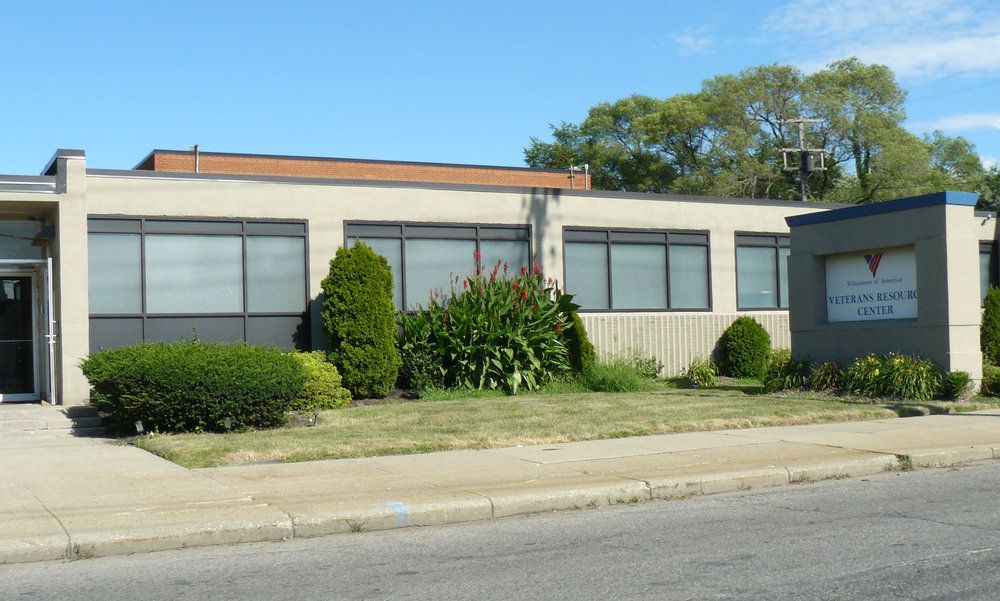Rest in Peace: Transitional Shelters

We had a presentation from the consultant the County hired in July about the changes that are taking place with regard to the Department of Housing and Urban Development funding and the rules associated with receiving funds from the federal government. Suzanne Wagner, a national consultant and huge cheerleader for Permanent Supportive Housing, came to Cleveland to tell us that the time is up for transitional programs. The studies have all been done, the research is complete and the transitional programs are too expensive and keep people homeless for too long. So get ready to convert the transitional shelters to something else.
We have steadily moved forward with this plan to eliminate transitional programs by de-funding all the transitional beds for women. Some of those units were transformed into permanent supportive housing with the optimum word permanent. While the average transitional bed may turn over once or twice a year, the average PSH bed turns over once or twice every 10 to 15 years. If these beds are not replaced it creates a back up on the front end of the shelters. We have steadily lost transitional beds while steadily increasing the number of overflow or temporary beds locally.
Yes, there are studies that show PSH are more economic for the community, but they do not compare apples to apples with regard to transitional programs. They never factor in the capital cost of building a permanent housing unit when compared to the transitional shelters. They do not factor in that the homeless pool of resources is not growing and yet the homeless programs have to slice the pie thinner and thinner. We have to pay the housing costs of those in PSH every year with homeless funding along with all the other "priorities" we are mandated to serve coming out of Washington. We have to prioritize family homelessness and youth homeless while our money is all going to Permanent Supportive housing which neither youth nor families typically qualify for. In 2015, we spent 83% of the federal homeless dollars on Permanent Supportive Housing according to Cuyahoga County with a similar budget as we had in 2005.
Facility Monthly Cost Yearly Costs
- Emergency shelter costs $5,000 $26,800
- Transitional Housing $2,700 $32,500
- Rapid Rehousing $880 $6,500
This was distributed by Wagonner and comes from the HUD Family Option Study July 2015. Again the problem is that this does not factor the cost of building these units and it does not factor in the loss of housing vouchers in the community that support these projects. These vouchers were previously used to support a broad cross section of low income people. Now, they are confined to a limited population in a geographically small area.
The problem with all of this is that 20 years ago, we heard from similar consultants who came to Cleveland telling us how great transitional programs can be for the community. They said, "Look, your alcohol, drug and mental health programs are failing you, and so you need to create alternatives locally where people have the time to find the treatment they need." They told us that transitional programs are a "game changer" and will significantly reduce homeless. Our advocates at the time in the community said, "Okay, lets try it." We invested in nearly 1,000 units of transitional housing in the community to ease people out of homelessness into housing. The big issues were that they screened many out of joining the program (so does the PSH program), and they kept people for a longer period of time than was necessary (but no where near permanently!). We needed these beds in our community for people with big issues. The transitional shelters were slow in preparing the bed when a person left but they became an integral part of our response to homelessness. It was confusing if these beds should be under the landlord tenant law since many lived there longer than the typical lease, but many found the help they needed in a transitional program. Instead of fixing these shortfalls, HUD and Cuyahoga County are moving to eliminate public funding for transitional shelters.
In November 2015, Cuyahoga County will declare "functional zero" in the number of homeless veterans. So, this has to be considered a victory and we should use the lessons we learned from "solving" veteran's homelessness. The Veterans Administration never moved away from transitional shelters and we have many veteran only transitional beds still in the community. They were a strong part of the response to vets struggling with PTSD or traumatic brain disorders. They were important for veterans in recovery or those with long term health issues. We had a diverse number and type of programs available to homeless veterans. Some transitional programs were tied to employment opportunities, some were tied to their health issue and other transitional programs were within HUD funded programs. The system obviously worked since we are declaring victory. Why is HUD forcing people to fit into these narrowly constructed programs?
Aren't there 700 people in the community who would benefit and would be better citizens if they had time to recover in a transitional program? We need a diverse response to homelessness, because our society is diverse. We need rental assistance for some, transitional for others, legal help for some and shelter for others. One size does not fit all in the homeless community. Say goodbye to the transitional shelters which are already gone in Chicago and Columbus. It was nice while it lasted, but they have been declared obsolete by HUD and the County. Those with a disability who may need a longer time to get stable are out of luck unless they stay homeless for a year and have the "right" kind of disability.
Brian Davis
Posts reflect the opinion of those who sign the entry.
